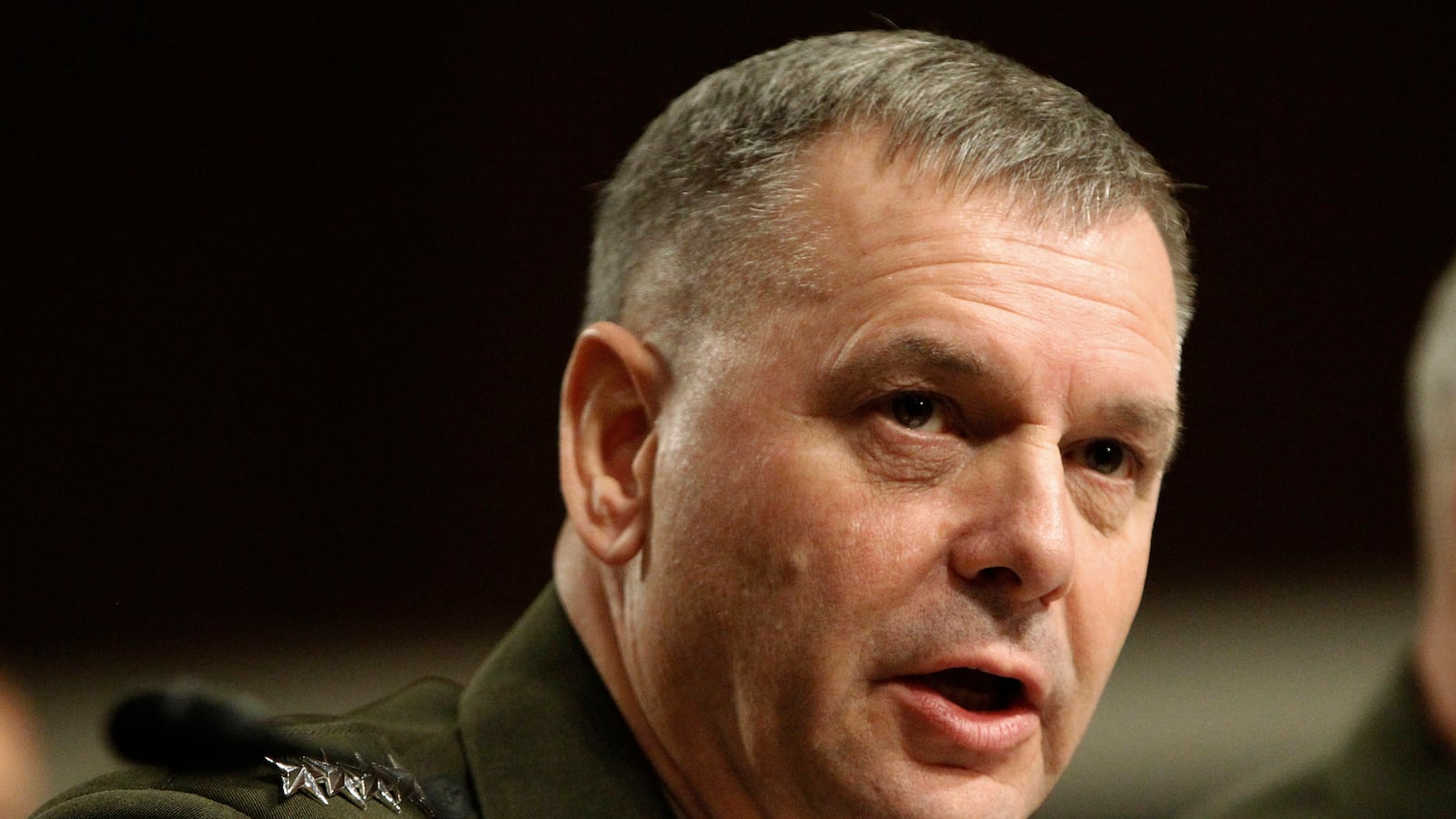Retired Marine Gen. James Cartwright, once considered one of President Obama’s favorite generals, pleaded guilty Monday to lying to federal investigators about revealing classified information to two journalists, including a New York Times reporter who wrote about a highly-classified U.S. cyberattack against Iran’s nuclear program.
The charges weren’t exactly a surprise. Cartwright has known for more than three years that he was the target of an investigation into who leaked details about the so-called Stuxnet computer virus, which the United States used to destroy centrifuges inside an Iranian nuclear enrichment facility in 2008 and 2009.
But notably, Cartwright who previously served as vice chairman of the Joint Chiefs of Staff, is the only person to have been charged in the leak investigation about the highly classified program, even though it’s clear from various books and articles that he wasn’t the only source of information about it. Times reporter David Sanger revealed the operation and wrote about it extensively in his book, Confront and Conceal.
That raises questions about why Cartwright is being charged now and if he was somehow singled out for speaking to Sanger and another journalist, Newsweek’s Daniel Klaidman.
In a statement, Cartwright acknowledged that he had talked to the journalists but said he was not the source of the leak about Stuxnet. Rather, he portrayed himself as trying to mitigate the fallout from the revelation of a secret program.
“It was wrong for me to mislead the FBI on November 2, 2012, [during an interview] and I accept full responsibility for this,” Cartwright said. “I knew I was not the source of the story and I didn’t want to be blamed for the leak. My only goal in talking to the reporters was to protect American interests and lives; I love my country and continue to this day to do everything I can to defend it.”
Gregory Craig, Cartwright’s attorney, said his client had “engaged in a well-known and understood practice of attempting to save national secrets, not disclosing classified information.” Craig said that by the time Cartwright talked to the journalists, they had already written their stories.
“His effort to prevent publication of information that might harm American lives or national security does not constitute a violation of any law,” Craig added. Neither he nor Cartwright specified what information, if any, the retired general may have prevented the journalists from publishing.
The charges state that investigators showed Cartwright “a list of quotes and statements” from Sanger’s book, “a number of which contained classified information.”
“Cartwright falsely told investigators that he was not the source of any of the quotes and statements,” the charges continue. “Cartwright also falsely told investigators that he did not provide or confirm classified information to David Sanger.”
The Obama administration has prosecuted more cases against government and military personnel for leaking than all other administrations combined. But there has long been an air of politics and intrigue surrounding Cartwright’s case.
A controversial figure within the senior military ranks, Cartwright had taken positions that put him at odds with other officers on major policy decisions, including when he broke with many generals and opposed a 2010 surge of U.S. combat forces in Afghanistan. That put him in the good graces of Obama, but it put him in the opposite camp of his peers, including Gen. David Petraeus and Gen. Stanley McChrystal.
Of course, Cartwright now has something in common with Petraeus, who pleaded guilty in April 2015 to mishandling classified information, after he disclosed secrets to his biographer and mistress, Paula Broadwell. But unlike that case, it’s not clear that Cartwright was alone in providing classified information to someone who wasn’t authorized to have it.
Reading Sanger’s book, it’s clear that the journalist had other sources besides Cartwright, both within the Obama administration and outside of government.
Did Cartwright overstep his bounds and reveal too much? That wasn’t clear from his plea agreement.
But reportedly the Justice Department had difficulty bringing charges against anyone for leaking the classified information about Stuxnet. When Cartwright was found to have lied to investigators, though, prosecutors had a charge to bring against him.
Cartwright was also charged with lying to investigators about whether he discussed a particular country to Newsweek’s Klaidman, who at the time was employed by The Daily Beast when the publications were merged. The charges say that Cartwright had “confirmed certain classified information relating to Country 1 in an email” to Klaidman. Country 1 presumably is Iran.
Cartwright will be sentenced on Jan. 17. He could receive a prison sentence from zero to six months, per the terms of an agreement with federal prosecutors.





